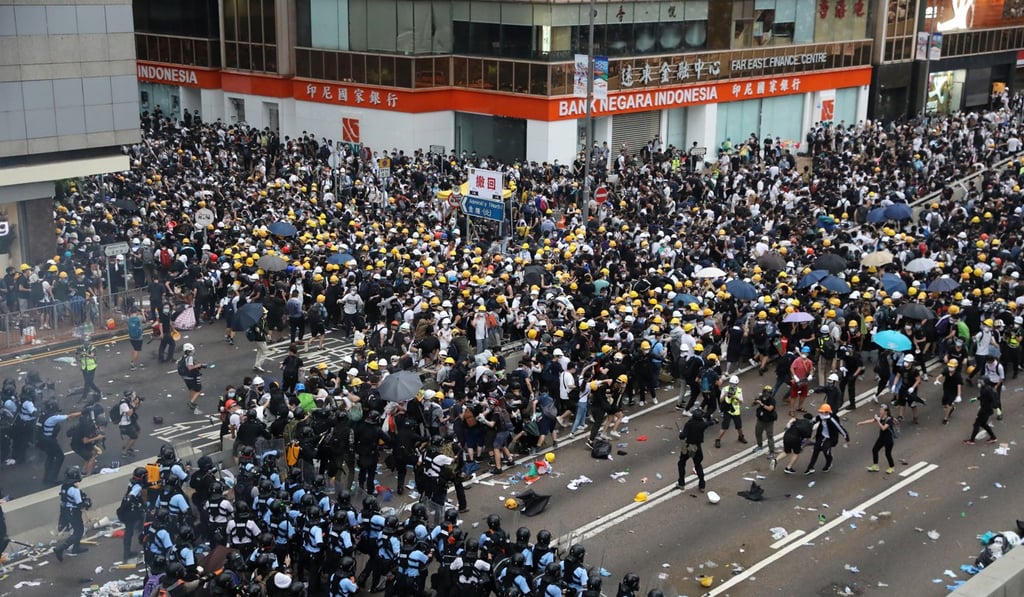South Koreans rally to support Hong Kong protests against extradition bill
- More than 20,000 Koreans sign a petition urging action from President Moon Jae-in as many remember their own history of protest
- But debate has been fiery on university campuses, where Hong Kong and mainland Chinese students studying abroad have mixed views

Moon has previously promised to act on any petition submitted to the presidential Blue House that earns 200,000 signatures in 30 days.
The country’s third-largest political party, Bareunmirae – which has 28 lawmakers in the 300-member parliament – issued a statement of opposition on Friday against Hong Kong’s proposed legislation, which would allow for the transfer of fugitives to jurisdictions the city does not have an extradition deal with – including mainland China.

Violent clashes took place in Hong Kong earlier this week between police and young protesters after a mass rally against the bill saw hundreds of thousands take to the streets.
“We support Hong Kong’s democracy movement,” said Bareunmirae representative Lee Jong-cheol in a statement on the party’s website.
“We hear the strong echo of the cry of a Hong Kong headed towards democracy and freedom. The authorities should not deal with Hongkongers’ righteous demands through physical suppression. We are watching and oppose the government’s oppression by bloodshed.”